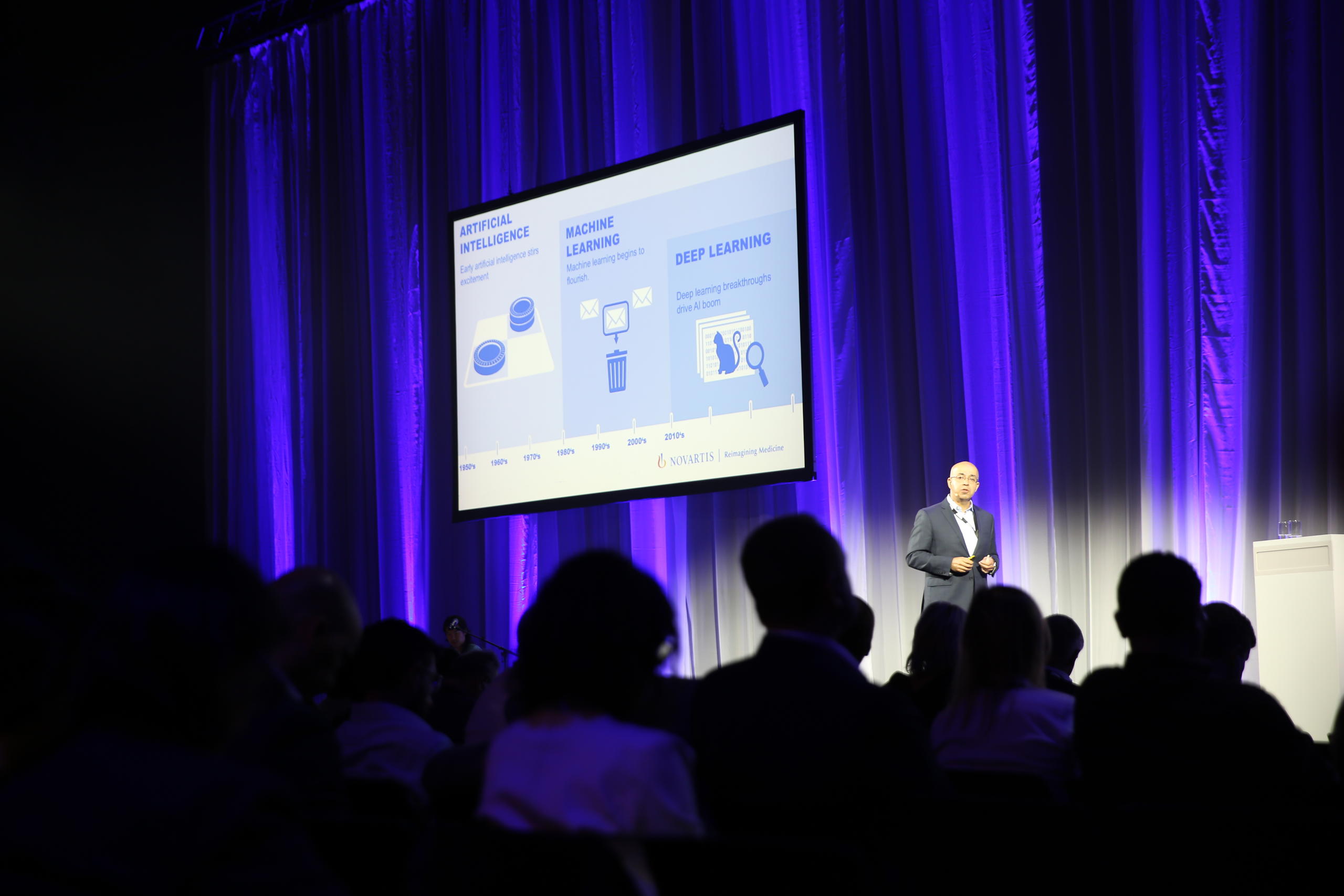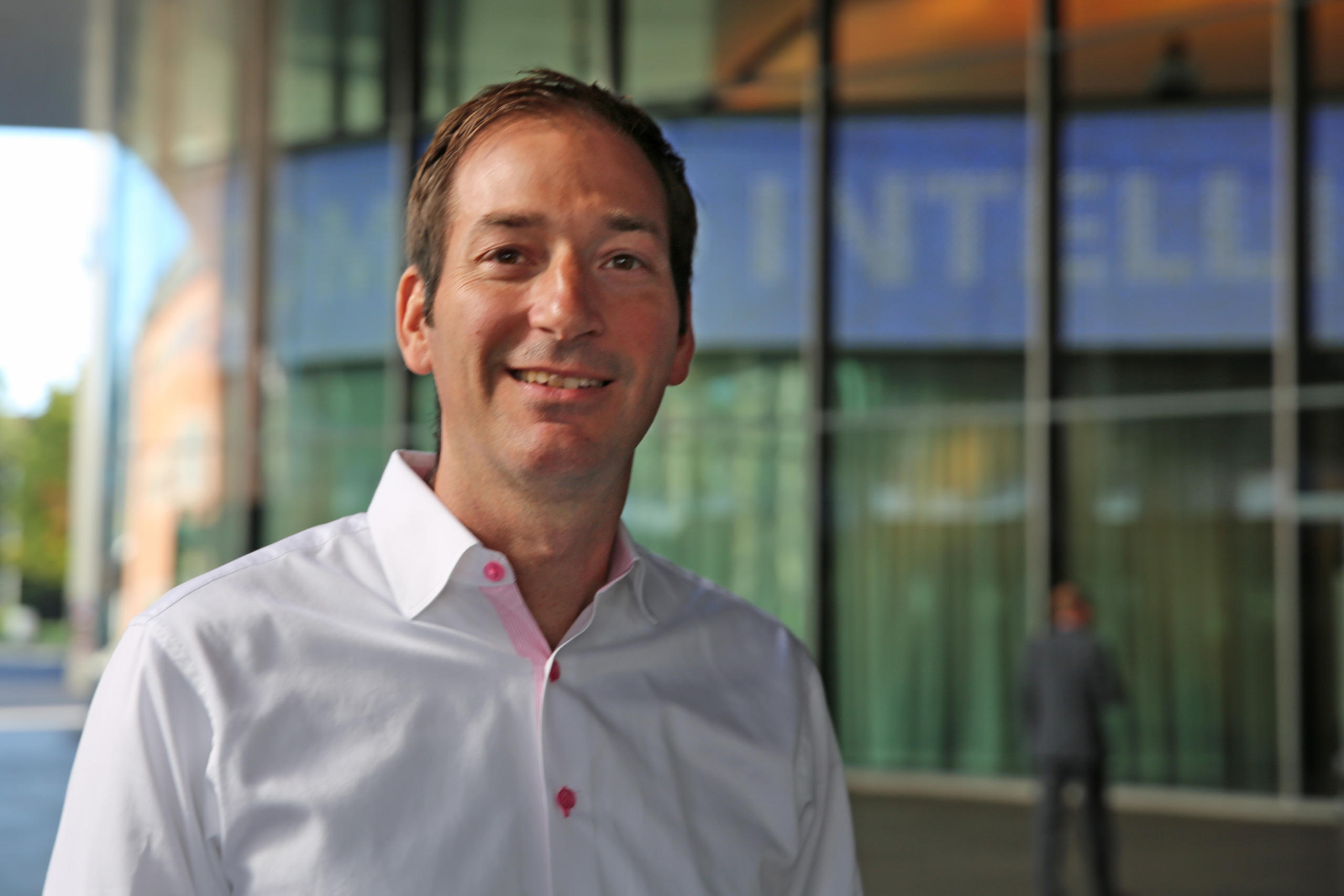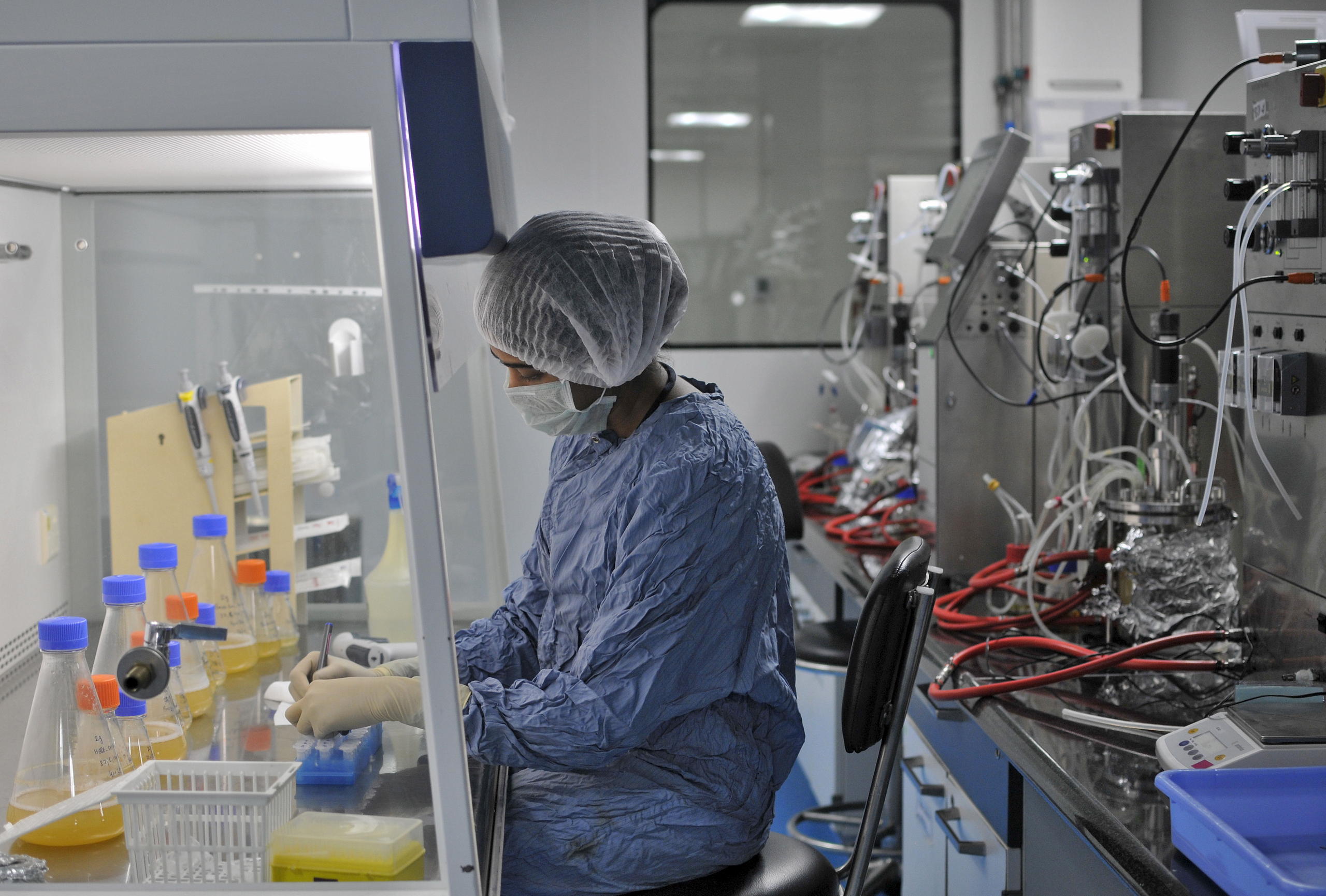Switzerland, land of big pharma, tries to reel in AI startups

Artificial intelligence (AI) could do wonders for hospitals: sharper diagnosis, fewer admin chores and more time spent with patients. Switzerland is well placed to be an AI health hub, but there are complicating factors.
Machines can already scan and synthesise clinical data findings previously scattered across tens of thousands of medical publications. Bots can scan social media to identify signs of suicidal tendencies in online chatter. Algorithms can track contagion or the onset of rare diseases. Speech recognition software can log doctor-patient dialogues in real-time. Smartphone apps can determine dermatological conditions remotely.
Switzerland has a robust ecosystem of big pharma and life sciences sector, and ambitious start-ups born out of top universities. This concentration of innovators and capital have not gone unnoticed.
It is no coincidence that Basel, home to the pharmaceutical giants RocheExternal link and NovartisExternal link, hosted the Intelligent Health AIExternal link summit two years in a row. Start-up hubs and incubator programmes around AI and the health sector proliferate across the Alpine nation.
But experts warn that obstacles are holding the country back. Some are inherent to having a small and fragmented market; others relate to business culture.
‘We take smaller steps’
“This is no Silicon Valley,” notes wryly Martin Pietrzyk, CEO and founder of Unit8External link, a start-up developing AI solutions for medical companies. “The US guys are thinking really, really big and global from day one whereas here we are more reserved. We take smaller steps.”
One exception is Mindmaze, now worth over $1 billion, catapulted from start-up to first Swiss unicorn thanks to a significant investment from India. The company is a spin-off from the Swiss Federal Institute of Technology EPFLExternal link in Lausanne. Such a trajectory, however, remains the exception rather than the norm.
The Artificial Intelligence Startup MapExternal link from telecoms provider Swisscom flags only 20 young companies in the healthcare and life sciences space that are Switzerland-based and have a clear focus on artificial intelligence and a scalable business model. The website startupticker.ch lists 211 in the machine learning/AI space and another 75 in digital health. That’s compared to 146 healthcare startups in Israel, considered a rising star in the AI landscape, which is dominated by the US and China.
Compared to other countries in Western Europe, Switzerland is a country where the proportion of startups working in Big Data and AI is low, according to startupticker.chExternal link, which analysed a database of 4,000 startups working across different sectors in Switzerland. It found that 14% of all start-ups are in the life sciences, biotech and medtech sectors.
Still, Stefan Suter saw clear advantages in his homeland, which motivated him to move back with his family from Singapore and launch Curo-HealthExternal link. “Tax is moderate,” he notes. “The workforce is well-educated. There is high reputation. Whenever you go somewhere with a Swiss business card, that has a lot of value, particularly in emerging markets. There are not really many disadvantages.”

Rising global appeal
Faraz Oloumi is a young Canadian at the helm of a start-up developing software which aims to predict whether a person will go blind or not. He moved his venture to Switzerland in January as one of three successful applicants selected to join DayOne start-up accelerator programmeExternal link in Basel.
Tested on about 2,500 images, the algorithm they developed is on average five percentage points more accurate than an individual physician (97% versus 92% accuracy), according to Oloumi.
Being in Switzerland has allowed his company, AurteenExternal link, to grow much faster than when it was based in Canada, says Oloumi, adding that it was a no-brainer to incorporate here.
“There is support from so many different directions: technical support, mentoring, business development, clinical trials, regulatory, even investors raising funds at an early stage,” the Aurteen founder says. But it still makes sense to maintain a foothold in Canada to access data for research purposes.
Egle B. Thomas brought her experience from California to Switzerland, where she now works as a coach at DayOne, one of several innovation hubs in the country. “Silicon Valley offers very fast growth and very good funding for later on, but I think, in the early stages, there is more incubation and more support in Switzerland. It is more community oriented here.”
Switzerland’s global appeal is evident in the DayOne applicant pool. Last year, they received 33 Swiss applications out of 59. This year, it was 19 out of 125 — figures that reflect more significant worldwide outreach efforts, according to Fabien Streiff, head of innovation and healthcare for DayOne.
Speed bumps: data and money
But Streiff sees two challenges in Switzerland when it comes to digital health. One is access to large sets of data – where larger countries have a natural advantage – and another is market placement.
Whereas the biotech industry generally offers a clear path to market entry, Streiff says that the way forward is murkier in the digital health field.
“There are different ways to enter the market, and that’s a challenge for the start-up,” he says. For example, a company might purchase an AI-driven solution for use in imaging and diagnostics or drug discovery.
The tech entrepreneur Christopher Rudolf says a conversation with the Swiss ambassador in London at a medical health insurance innovation event persuaded him to set up his company Volv GlobalExternal link in Switzerland.
Headquartered at the Biopole science park in LausanneExternal link, the company’s first project was helping a pharmaceutical company identify additional patients suffering from a rare disease – with a prevalence rate of one in a million – treatable by its specialist medicine.
While setting up in Switzerland was relatively smooth, Rudolf found that securing cash flow in the early stages was a challenge. “We have a pipeline of business coming, and you go to the bank, and they say, ‘Sorry, we cannot help you. You are not two years old yet’,” he says. “In the UK, that would be completely different.”
Another challenge is Switzerland’s fragmented healthcare system. There are 60 medical insurers operating across the country, and Rudolf says that as such they lack incentive for broad change.
Connecting with big pharma is not always easy
Switzerland’s high concentration of pharmaceutical companies does offer an opportunity, however.
“Pharma is an important client base for us, and there are not too many better spots than being in Switzerland and in Basel itself,” says Suter, the founder of CuroHealth.
He notes that having worked with Novartis has helped his credibility when developing other business relationships in the pharma industry. Other start-up founders who declined to comment on the record, however, told SWI swissinfo.ch that it was often difficult to get big pharma’s attention in Switzerland. If they get a foot in the door, some said they worried that their ideas would be copied.
Shahram EbadollahiExternal link, Novartis’s Global Head of Data Science and AI, acknowledges that a company like his can look a bit “like an elephant” to smaller ones.
“It might be hard for the start-up to know which part of the company to interface with,” says Ebadollahi, who has a background in tech. Last year, the company set up BiomeExternal link– a network to help Novartis business teams create scalable digital programmes with strategic partners, including small start-ups – to ease interfacing with the pharmaceutical giant.
Rival Roche, meanwhile, initiated an accelerator for digital health start-upsExternal link in Munich and supports the Basel Launch programmeExternal link in Switzerland.
“We have the people, [but] sometimes it’s just difficult for them to grow fast enough,” says Marc Stampfli, Switzerland sales manager for NVIDIAExternal link, which is working to accelerate more than 1,800 start-ups in Europe. He declined to disclose how many start-ups the company supports in the Alpine nation.
“The interesting thing about deep learning is that it’s not only something the big companies can do,” he says.
“If you have your own unique niche, even a small company can use it worldwide to become the major player in that sector.”

In compliance with the JTI standards
More: SWI swissinfo.ch certified by the Journalism Trust Initiative







You can find an overview of ongoing debates with our journalists here. Please join us!
If you want to start a conversation about a topic raised in this article or want to report factual errors, email us at english@swissinfo.ch.